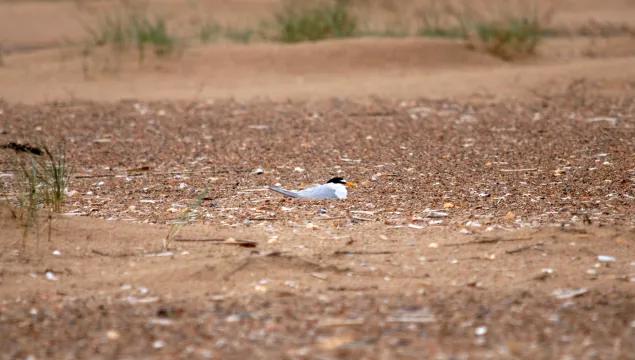
Little tern
Found around our coasts during the breeding season, the little tern is a diminutive seabird. Despite its size, it performs remarkable aerial courtship displays.

Found around our coasts during the breeding season, the little tern is a diminutive seabird. Despite its size, it performs remarkable aerial courtship displays.
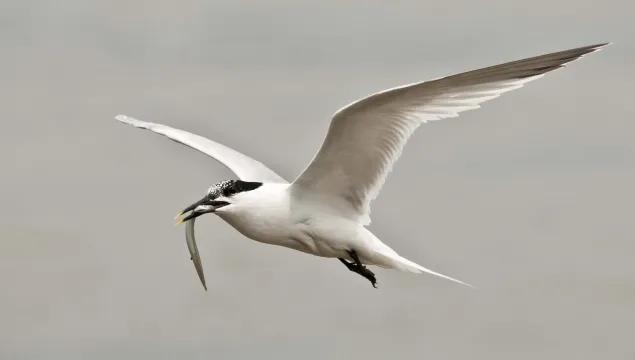
Found around our coasts during the breeding season, the large Sandwich tern can be spotted diving into the sea for fish such as sandeels. It nests in colonies on sand and shingle beaches, and islands.
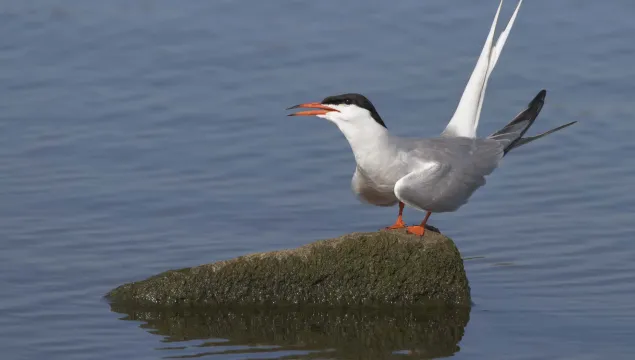
During the breeding season, the common tern can be seen around our coasts and also inland at gravel pits, reservoirs and lakes. It nests in noisy colonies and can be spotted plunge-diving for fish.
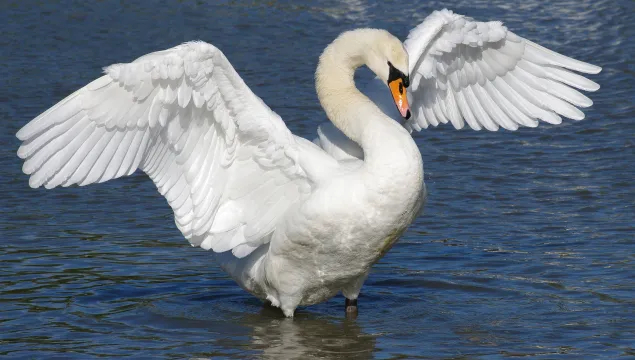
One of our most iconic waterbirds, the mute swan is famed for its grace and beauty. It is also considered to be a romantic of the bird world because partners form a perfect love heart with their necks.
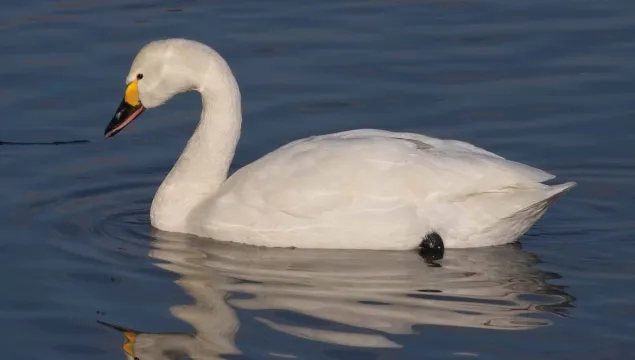
A winter visitor, the well-travelled Bewick's swan is the smallest of our swans. It has more black on its yellow-and-black bill than the whooper swan. Look out for it around Eastern England and the Severn Estuary.
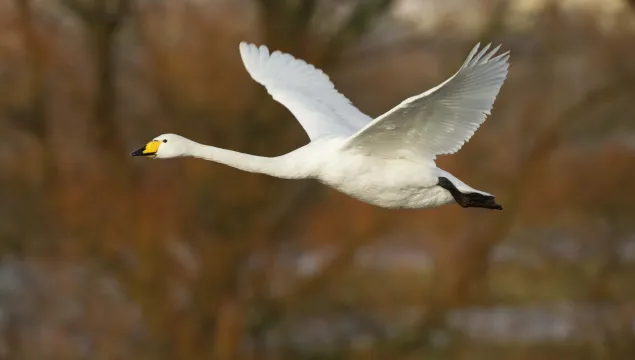
The whooper swan is a very rare breeding bird in the UK, but has much larger populations that spend winter here after a long journey from Iceland. It has more yellow on its yellow-and-black bill than the Bewick's Swan.
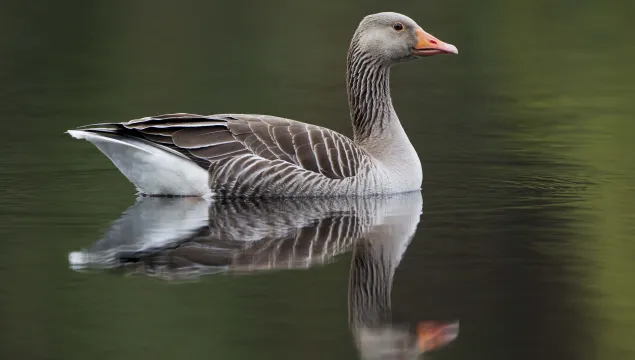
The greylag goose can be easily spotted around parks, gravel pits and river valleys, but these populations tend to be semi-tame, having been reintroduced. Truly wild populations can be found in Scotland.
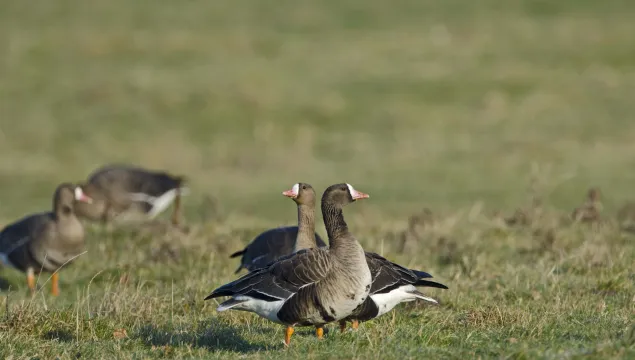
The white-fronted goose lives up to its name - look out for the white patch on its forehead and around its bill. It does not breed in the UK, but flies here from Greenland and Siberia for the 'warmer' winter weather.
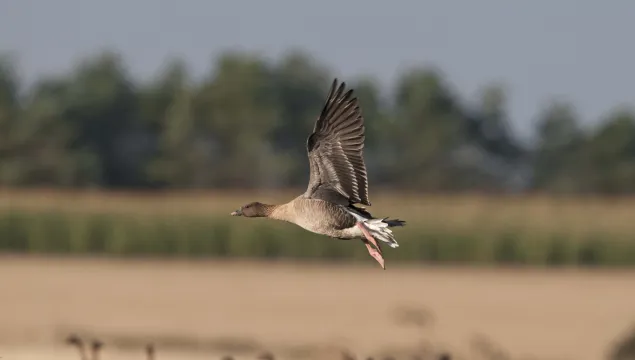
The pink-footed goose is a winter visitor to the UK, feeding on our wetland and farmland habitats. About 360,000 individuals spend the winter here, making it a really important destination for this bird.
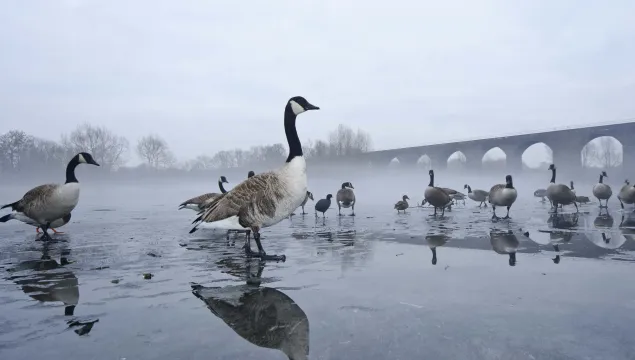
The Canada goose is our most familiar goose, although it is not actually native to the UK. A common and bold bird, it can be found around most parks, lakes, reservoirs and gravel pits.
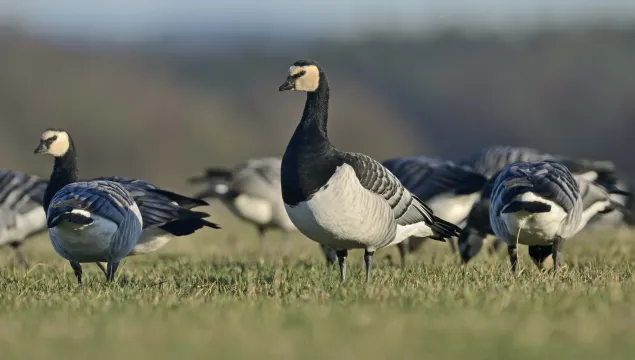
The black-and-white barnacle goose flies here for the 'warmer' winter from Greenland and Svalbard. This epic journey was once a mystery to people, who thought it hatched from the goose barnacle at sea!
The brent goose flies to the UK for the milder winter. Two populations arrive: those with dark bellies can be found around Eastern England